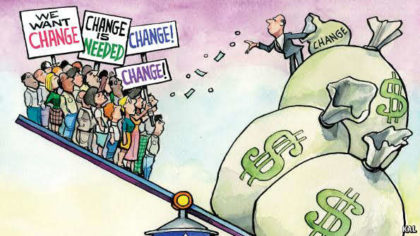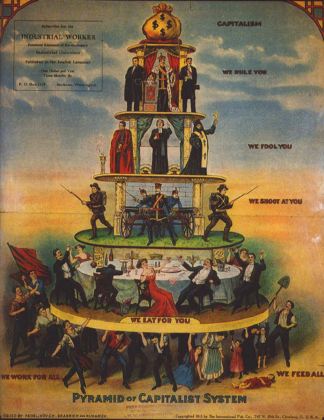
Description
POLI 489
Department of Political Science
Concordia University
Summer 2019
Office Hours: Tues & Thurs 4:00PM (by request)
Professor’s Office: H-1125.12
Class Time: Tues & Thurs 1:15-4:00PM
Classroom – H 633
Required Readings:
Osberg, L. (2018) The Age of Increasing Inequality – The Astonishing Rise of Canada’s 1%, James Lorimer and Company.
Boushey, H., Delong J. B., & Steinbaum M. (2017). After Piketty: The Agenda for Economics and Inequality, Harvard University Press.
Other required readings are listed below.
Recommended Readings:
If you do not have a background in Political Economy, you may want to read the following text to help familiarize yourself with the subject matter. Particularly the chapters provided below.
Stanford, J (2015) Economics for Everyone, A Short Guide to the Economics of Capitalism 2nd Edition, Pluto Press.
Chapter 1 – The Economy and Economics
Chapter 2 – Capitalism
Chapter 3 – Economic History
Chapter 4 – The Politics of Economics
Chapter 14 – Inequality and its Consequences
Lecture Schedule: Themes and Required Readings
This is a TENTATIVE schedule and is subject to change. Be sure to consult the course website regularly to be aware of any changes.
May 14 – Introduction
Reading: Galbraith, J. K. (2004) The Economics of Innocent Fraud: Truth for Our Time, Houghton Mifflin Company.
May 16 – Social, Political and Economic Systems
Readings: Please read at least two of the following chapters.
Polanyi, K. (2001) The Great Transformation; The Political and Economic Origins of Our Time, Beacon Press.
Chapter 4 – Societies and Economic Systems
Chapter 5 – Evolution of the Market Pattern
Chapter 6 – The Self-Regulating Market and the Fictitious Commodities: Land, Labour and Money.
May 21 –Capital, Value, Production and Reproduction
Readings: Please read at least two of the following chapters.
De Angelis, M. (2007) The Beginning of History, Value Struggles and Global Capital.
Chapter 2 – Value Struggles
Chapter 3 – Capital as a Social Force
Chapter 4 – With No Limits
Chapter 5 – Production and Reproduction
May 23 – Capital in the 21st Century
Readings: Please read both chapters.
Boushey, H., Delong J. B., & Steinbaum M. (2017). After Piketty: The Agenda for Economics and Inequality, Harvard University Press.
Introduction – Capital in the Twenty First Century, Three Years Later.
Chapter 22 – Towards a Reconciliation Between Economics and the Social Sciences, Lessons from Capital in the Twenty-First Century.
May 28 – Historical Origins of Global Inequality
Readings: Please read both chapters.
Boushey, H., Delong J. B., & Steinbaum M. (2017). After Piketty: The Agenda for Economics and Inequality, Harvard University Press.
Chapter 11 – Global Inequality
Chapter 20 – Historical Origins of Global Inequality
Student-Led Seminar 1
May 30 – Inequality in Canada
Readings: Please read both chapters.
The Age of Increasing Inequality – The Astonishing Rise of Canada’s 1%,
Introduction & Chapter 1
Student-Led Seminar 2
Proposal Due
June 4 – Inequality in Canada
Readings: Please read both chapters.
The Age of Increasing Inequality – The Astonishing Rise of Canada’s 1%
Chapter 2 & Chapter 3
Student-Led Seminar 3
June 6 – Inequality in Canada
Readings: Please read both chapters.
The Age of Increasing Inequality – The Astonishing Rise of Canada’s 1%
Chapter 4 & Chapter 5
Student-Led Seminar 4
June 11 – Inequality in Canada
Readings:
Please read both chapters.
The Age of Increasing Inequality – The Astonishing Rise of Canada’s 1%
Chapter 6 & Chapter 7
Student-Led Seminar 5
June 13 – Inequality in Canada
Reading:
The Age of Increasing Inequality – The Astonishing Rise of Canada’s 1%
Chapter 8
Student-Led Seminar 6 & 7
June 18 – How to Reduce/Eliminate Inequality
Reading:
The Age of Increasing Inequality – The Astonishing Rise of Canada’s 1%
Chapter 9
Student-Led Seminar 8 & 9 & 10
Final Essay Due
Assignments:
| Assignments | Due Date | Points Allocated |
| Reading Responses (best 4 out of 5) | Any reading Until May 28 | 20 |
| Summary of Inequality in Canada | 21-Jun | 10 |
| Student-Led Seminar | Will Be Assigned | 15 |
| Proposal | 30-May | 15 |
| Final Essay | 18-Jun | 30 |
| Participation | Throughout the Semester | 10 |
Reading Responses: Students will be expected to submit five, one-page (300-400 word) responses to one of the assigned readings (chapters) from May 14th – May 28th. Students will be evaluated based upon their ability to analyze the text critically. The best four readings responses will count for a score on five adding up to a total of twenty points. Students will be evaluated on how well you: a) identify the central claim or thesis of the text and articulate it in our own words; b) identify the supporting evidence for the claim and the key concepts introduced; and c) relate the text to other examples that support or contradict the central claim or thesis – this can come from other texts, documentaries, research or valid examples. Don’t base your claims on conjecture.
Summary of Inequality in Canada: Students will be expected to submit a two-page, (500 – 800 word) summary of the book ‘The Age of Increasing Inequality – The Astonishing Ride of Canada’s 1%. Students will be evaluated based upon their ability to analyze the text critically. Students will be evaluated on how well you: a) identify the central claim or thesis of the text and articulate it in our own words; b) identify the supporting evidence for the claim and the key concepts introduced; and c) relate the text to other examples that support or contradict the central claim or thesis – this can come from other texts, documentaries, research or valid examples. Don’t base your claims on conjecture. The essay is due on June 21st.
Student-led seminar: Beginning on May 30th students will lead a seminar in groups of two. Students will be evaluated on their ability to identify the central claim or thesis of the text and articulate it in our own words, synthesize the readings in a clear, informative manner, lead a discussion about the chapter and provide examples and/or case studies that support or contradict the arguments put forth in the chapter they are presenting. Students should also relate the material to the required and/or recommended readings.
Students will choose a chapter from ‘Boushey, H., Delong J. B., & Steinbaum M. (2017). After Piketty: The Agenda for Economics and Inequality, Harvard University Press’. Students may also choose from a list of books and articles that will be provided in class.
Participation: With regards to the participation grade, you will receive 5 out of 10 points for attending all the classes. The remainder of the grade is based on your involvement in discussion and participation in classroom activities.
Final Essay: Students will write an essay about a subtopic relating to the political economy of inequality. Students are expected to perform a literature review using at least ten sources, then write a report about their findings. Students will be evaluated based on their ability to identify current trends in the literature, the quality of the sources they incorporate, and the clarity and conciseness of the report. A more specific grading rubric will be distributed in class. The essay is due on June 18th.
Subjects for Final Essay
Literature Review on One of the Following Topics:
Indigenous Perspectives about Inequality
LGBTQ Perspectives about Inequality
Degrowth Economics and Inequality
Global Migration and Inequality
Race and Inequality
Performativity, Economies and Inequality
Gendered Perspectives about Inequality
Geography of Inequality
The Green New Deal
Colonial Perspectives about Inequality
Reformative and Transformative Solutions to Inequality
Micro/Macro Theories about Inequality
Redistribution and Inequality
Democracy and Inequality
Property, Rents, Expropriation and/or Inequality
Black Rights Movements and Inequality
Capitalism and Inequality
Inheritance and Inequality
Theory of Social Balance – J.K Galbraith
I am open to other ideas too. Please approach me if you prefer to write about another topic.
Letter Grade Equivalency:
Your numerical grades will be converted to letter grades as follows:
A+ (93 – 100%) B+ (77 – 79.9%) C+ (67 – 69.9%) D+ (57– 59.9%)
A (85 – 92.9%) B (73 – 76.9%) C (63 – 66.9%) D (53 – 56.9%)
A- (80 – 84.9%) B- (70 – 72.9%) C- (60 – 62.9%) D- (50 – 52.9%)
F < 50%
Late assignment policy:
Unless you are given permission in advance, late assignments will not be accepted without adequate documentation of medical or personal emergencies.
Handing in Assignments:
All assignments MUST be submitted in hard copy at the beginning of class on the due date. Any assignment submitted electronically will be subject to a reduction of 25% of the value of the assignment.
A list of Student Services and Useful Resources
Counselling and Psychological Services: http://concordia.ca/students/counselling-life-skills
Concordia Library Citation and Style Guides: http://library.concordia.ca/help/howto/citations
Student Success Centre: http://concordia.ca/students/success
Health Services: http://concordia.ca/students/health
Financial Aid and Awards: http://concordia.ca/offices/faao
HOJO (Off Campus Housing and Job Bank): http://csu.qc.ca/hojo
Academic Integrity: http://concordia.ca/students/academic-integrity
Access Centre for Students with Disabilities: http://concordia.ca/offices/acsd
CSU Advocacy Centre: http://csu.qc.ca/advocacy
Dean of Students Office: http://concordia.ca/offices/dean-students
International Students Office: http://concordia.ca/students/international
Student Hub: http://concordia.ca/students
Sexual Assault Resource Centre: http://concordia.ca/students/sexual-assault.html
Indigenous Directions: http://concordia.ca/about/indigenous.html
University Rights and Responsibilities
Academic Integrity: “The Academic Code of Conduct sets out for students, instructors and administrators both the process and the expectations involved when a charge of academic misconduct occurs. The regulations are presented within the context of an academic community which seeks to support student learning at Concordia University.” (From Article 1 of the Academic Code of Conduct). Full text:
http://www.concordia.ca/students/academic-integrity/offences.html
Plagiarism: The most common offense under the Academic Code of Conduct is plagiarism, which the Code defines as “the presentation of the work of another person as one’s own or without proper acknowledgement.” This includes material copied word for word from books, journals, Internet sites, professor’s course notes, etc. It refers to material that is paraphrased but closely resembles the original source. It also includes for example the work of a fellow student, an answer on a quiz, data for a lab report, a paper or assignment completed by another student. It might be a paper purchased from any source. Plagiarism does not refer to words alone –it can refer to copying images, graphs, tables and ideas. “Presentation” is not limited to written work. It includes oral presentations, computer assignment and artistic works. Finally, if you translate the work of another person into any other language and do not cite the source, this is also plagiarism. In Simple Words: Do not copy, paraphrase or translate anything from anywhere without saying where you obtained it! Source: Academic Integrity Website: http://concordia.ca/students/academic-integrity
Disabilities: The University’s commitment to providing equal educational opportunities to all students includes students with disabilities. To demonstrate full respect for the academic capacities and potential of students with disabilities, the University seeks to remove attitudinal and physical barriers that may hinder or prevent qualified students with disabilities from participating fully in University life. Please see the instructor during the first class if you feel you require assistance.
For more information please visit http://concordia.ca/offices/acsd
Safe Space Classroom: Concordia classrooms are considered ‘safe space classrooms’. In order to create a climate for open and honest dialogue and to encourage the broadest range of viewpoints, it is important for class participants to treat each other with respect. Name-calling, accusations, verbal attacks, sarcasm, and other negative exchanges are counter-productive to successful teaching and learning. The purpose of class discussions is to generate greater understanding about different topics. The expression of the broadest range of ideas, including dissenting views, helps to accomplish this goal. However, in expressing viewpoints, students should try to raise questions and comments in ways that will promote learning, rather than defensiveness and feelings of conflict in other students. Thus, questions and comments should be asked or stated in such a way that will promote greater insight into the awareness of topics as opposed to anger and conflict. The purpose of dialogue and discussion is not to reach a consensus, nor to convince each other of different viewpoints. Rather, the purpose of dialogue in the classroom is to reach higher levels of learning by examining different viewpoints and opinions with respect and civility.
I acknowledge that Concordia University is located on unceded Indigenous lands. The Kanien’kehá:ka Nation is recognized as the custodians of the lands and waters on which we gather today. Tiohtiá:ke/Montreal is historically known as a gathering place for many First Nations. Today, it is home to a diverse population of Indigenous and other peoples. We respect the continued connections with the past, present and future in our ongoing relationships with Indigenous and other peoples within the Montreal community. (Indigenous Directions Leadership Group, Feb. 16, 2017)




